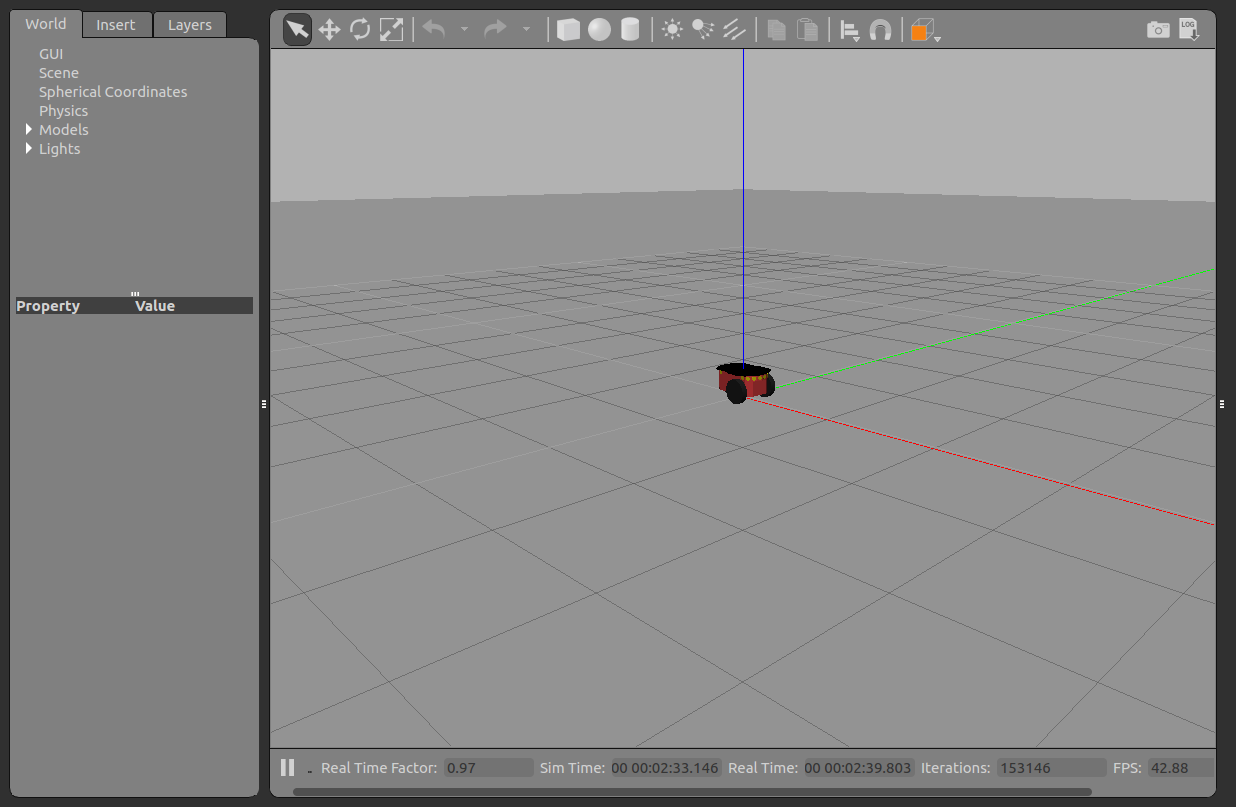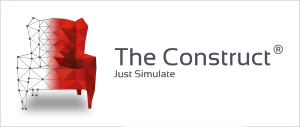The Future of Robot Rescue Simulation - Installation Requirements
Computation Hardware
For the RoboCup 2017 we intent to use as servers four Intel Core i7 (the latest Kaby Lake generation: 6700K, 6800K or 7700K) processor (3.3 GHz or higher) with /128GB SSD/16GB RAM DDR4 or larger/Gigabit network card/NVIDIA GeForce Graphic cards (GTX 1080 or faster). On this servers we like to use Ubuntu 16.04 LTS, which combines with ROS Kinetic and Gazebo7. The workshop of 2016 had several tutorials and hands-on assignments, which required a simulation and programming environments based on Ubuntu 14.04 LTS, ROS Indigo and Gazebo5. This page gives an update of the installation instructions for the 2017 environment.
In addition, we also update the tutorial by The Construct Sim how simulation could be performed in the cloud.
Still, it is beneficial to have a Linux laptop prepared for the 2017 compition.
An alternative is to run the environment in a Virtual Machine. When time allows, we will prepare such Virtual Machine. Yet, previous experiences with running so demanding simulation and visualization software in a Virtual Machine not positive, so for the moment we would recommend to run the software native.
Installation Instructions
What is needed to be prepared for the workshop, is Linux laptop with Ubuntu 16.04.2 LTS (Xenial Xerus 64bits), with ROS Kinetic and Gazebo7. These are the instructions to get to such installation:
- Follow the instructions to install Ubuntu 16.04.2 LTS.
- If your version of Ubuntu is older (i.e. 12.04 or 14.04 LTS), you could upgrade with the command do-release-upgrade or apt-get dist-upgrade (all these installation commands are executed as super-user by adding sudo command in front).
- If upgrading fails, search for held installations with the command dpkg --get-selections | grep hold, followed by apt-get remove PACKAGE, apt-get update and apt-get autoremove.
- If upgrading still fails, search for broken installations with the command grep Broken /var/log/dist-upgrade/apt.log, followed by apt-get remove PACKAGE and apt-get autoremove.
- Once you have Ubuntu 16.04.2 LTS, install to install ROS Kinetic:
- sudo sh -c 'echo "deb http://packages.ros.org/ros/ubuntu $(lsb_release -sc) main" > /etc/apt/sources.list.d/ros-latest.list'
- sudo apt-key adv --keyserver hkp://ha.pool.sks-keyservers.net:80 --recv-key 421C365BD9FF1F717815A3895523BAEEB01FA116 or alternatively wget http://packages.ros.org/ros.key -O - | sudo apt-key add -
- sudo apt-get update
- sudo apt-get install ros-kinetic-desktop
- sudo apt-get install rosbash
- If this installation fails due to conflicts between dependencies of packages which are no longer installed but whose dependency remained after the Ubuntu upgrade, remove the old dependency with the command dpgk -r PACKAGE.
- Continue with the installation of the latest production version of Gazebo (gazebo7 is part of ROS Kinetic):
- sudo sh -c 'echo "deb http://packages.osrfoundation.org/gazebo/ubuntu-stable `lsb_release -cs` main" > /etc/apt/sources.list.d/gazebo-stable.list'
- wget http://packages.osrfoundation.org/gazebo.key -O - | sudo apt-key add -
- sudo apt-get update
- sudo apt-get install ros-kinetic-gazebo-ros-pkgs
Alternative installations
The packages used during this workshop have complex dependencies. It is well possible that you don't have to downgrade from ROS Lunar or upgrade from Gazebo5 and still be succesfull in the competition. Actually, such alternative installation could give usefull information on the sensitivities and dependencies of the packages, so please record your experience. Yet, our experience is that the least time is wasted when you upgrade/downgrade to the versions which are recommended here.
Testing your installation
- You could test your installation with typing the following commands:
- echo Terminal0
- roscore
- echo Terminal1
- ls /usr/share/gazebo-7/worlds
- rosrun gazebo_ros gazebo worlds/pioneer2dx.world:

Workshop Program
Day 1 - Monday Feb 29
We have not updated (yet) the instructions of the other days of the workshop:Day 2 - Tuesday March 1
Day 3 - Wednesday March 2
Day 4 - Thursday March 3
Day 5 - Friday March 4
Tutorial Preparation
- Masaru Shimizu, Chukyo University, Aichi, Japan
- Lauren Tabolinsky & Arie Weeren - MathWorks
- Nate Koenig - Open Source Robotics Foundation
- Satoshi Kochiyama - New Energy and Industrial Technology Development Organization, Japan
- Stefan Kohlbrecher - TU Darmstad, Germany
- Ricardo Tellez - The Construct Sim
- Arnoud Visser, Universiteit van Amsterdam, The Netherlands
The organizing committee
- Arnoud Visser, Universiteit van Amsterdam, The Netherlands
- Francesco Amigoni, Politecnico di Milano, Italy
- Masaru Shimizu, Chukyo University, Aichi, Japan
This workshop is made possible by contributions of a number of companies and organizations: the Lorentz Center, the Intelligent Robotics Lab, the Intelligent Autonomous Systems fund, the Autonomous Intelligent Robots foundation, the Benelux Association for Artificial Intelligence, the RoboCup Federation, The Construct Sim and MathWorks.
.



![]()
The background image is an artist impresion of NASA's Valkyrie Robot (courtesy NASA's Johnson Space Center).